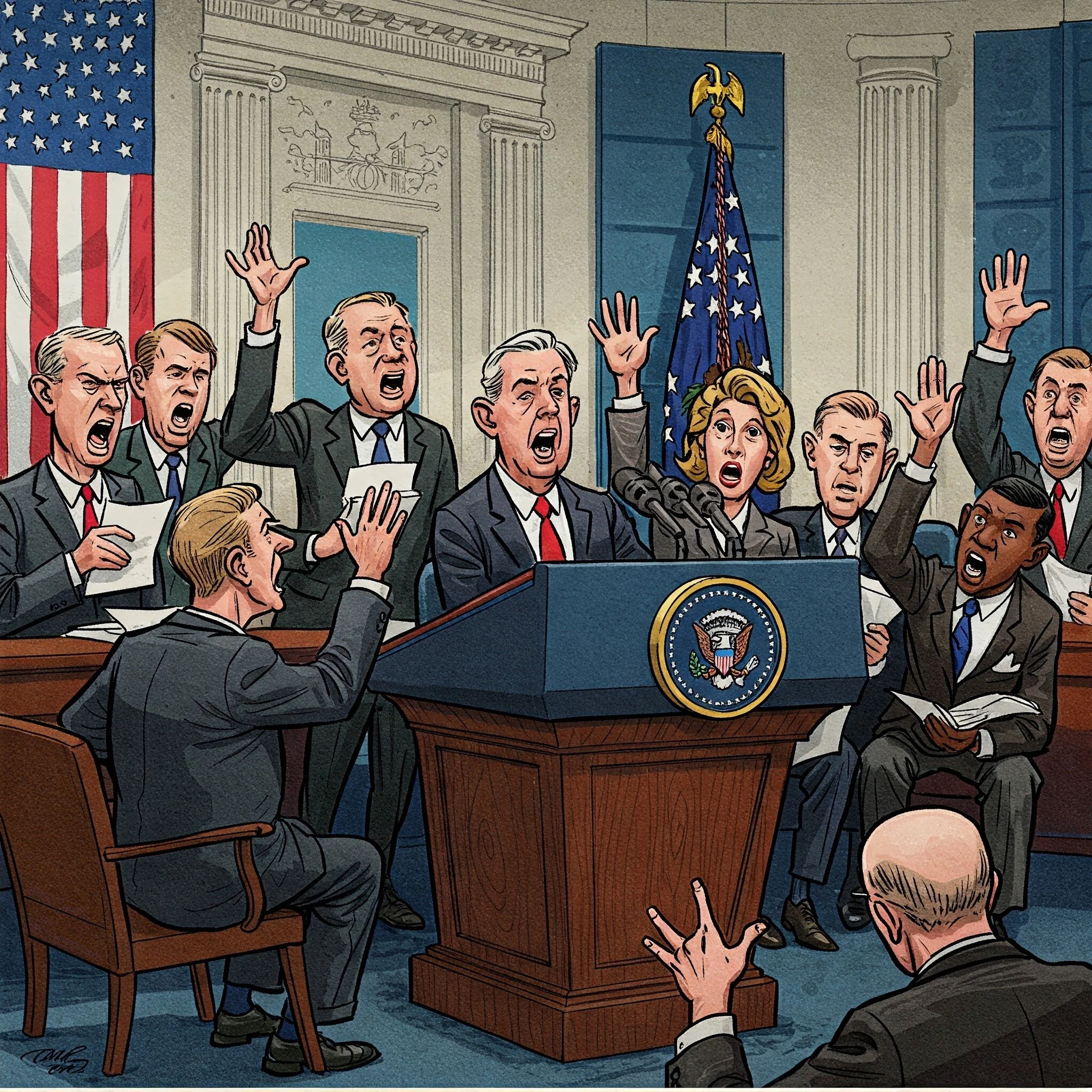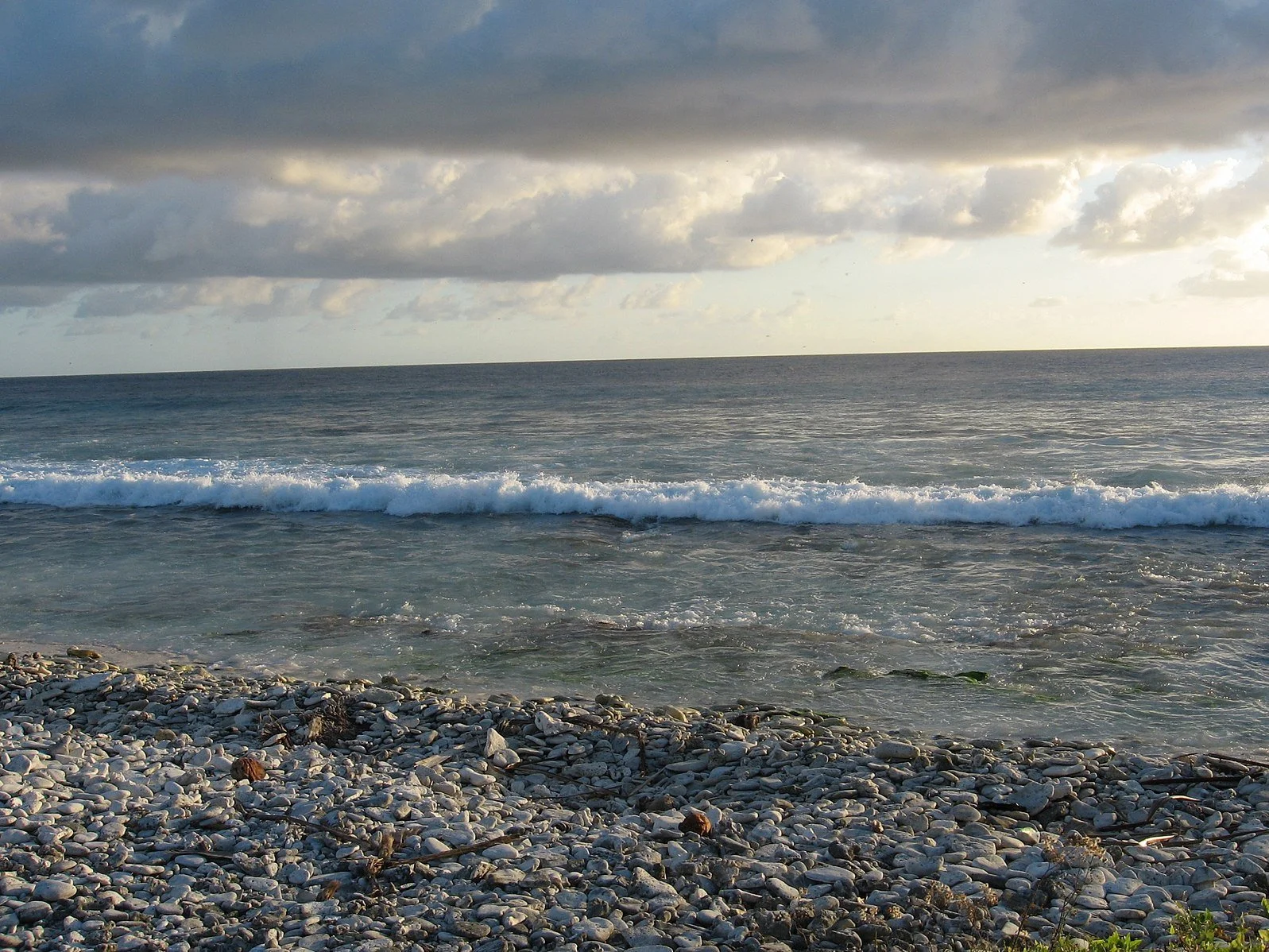What Are the Consequences of Trump's Presidency for American Journalism?
Journalists, left reeling by Donald Trump's first term as president, must adapt their strategies to cover him again. They are faced with legal threats against them and their outlets, investigations from the government, and accusations of ‘fake news’, a term popularised by Trump in his first presidency. It seems that American journalism is in danger, but with something new happening in the White House almost daily, things are bound to become even more precarious for news outlets. How are these changes affecting American journalism?
JANUARY
Shortly after Trump began his second term, his actions were shown to have ominous consequences for those opposing his views. This started with Trump's overhaul of the US government’s approach to terrorism, which could have a serious impact on anyone who publicly expresses views which don't conform to or match those of the Senate. The loose definition of terrorism in federal law means that it can be manipulated to reinforce certain views, and Trump has begun partnering with federal agencies to monitor online activity and enhance domestic surveillance as a counter measure to the threats to their leadership. The White House released this statement in January:
‘The United States must ensure that admitted aliens and aliens otherwise already present in the United States do not bear hostile attitudes toward its citizens, culture, government, institutions, or founding principles, and do not advocate for, aid, or support designated foreign terrorists and other threats to our national security’.
Trump has, however, said very little regarding other radical actions that align more closely with his views. This new approach to terrorism means that, from the beginning of the term, journalists have been put in danger of persecution for reporting on news in a way that contradicts the messaging of the US Government.
FEBRUARY
Trump went on to restrict the press pool in February, dictating who has access to his office and who can report on events with the president. He acted to restrict the Associated Press, which has a longstanding history of documenting historical presidential events, barring them from the press pool . Eugene Daniels, president of WHCA’s board, said that “This move tears at the independence of a free press in the United States. It suggests the government will choose the journalists who cover the president. In a free country, leaders must not be able to choose their own press corps.” Elsewhere, he also pointed out that,
‘For the public to get the information it needs to understand and make decisions about the most powerful office in the world, it needs news produced by experienced, professional journalists who ask tough questions and produce fair coverage. If a White House’s goal instead is to receive ‘favorable coverage’ through easy questions, the American people lose out’.
The reasoning behind this move was provided by White House Press Secretary Karoline Leavitt, who argued that the Associated Press had previously “dictated” their access to reporting on the president, and that these restrictions would restore “power to the people.” These restrictions were overruled by a federal judge on Tuesday 8th April, but the attempt from the government shows that it is possible to restrict access to the president and thus limit free press, hindering freedom of speech and information across America for a considerable amount of time.
MARCH
In March came an event that will go down among memorable governmental blunders: the leak of the Yemen attack plans to Jeffrey Goldberg, the editor-in-chief of the Atlantic Newspaper. The White House claims that this was due to a confusion of contact details, which resulted in Goldberg being the added to a group chat discussing attack plan for strikes on Houthi rebels. Goldberg initially refused to leak the information of several active service government agents, but recognised how a leak such as this could have life-threatening consequences in the wrong hands, saying, ‘I’m sure there are journalists who disagree with my view, who take a kind of, I would call it nihilistic view, which is, like: Information is information; we should just put it all out there’. The leaking of this group chat, interestingly, showed Vice President JD Vance as the hesitant one in this situation, attempting to slow the conviction to strike the Houthis and wary that this would be a mistake.
The president denied knowing anything about the incident, but House Speaker Mike Johnson defended the group chat. ‘What you did see [...] was top-level officials doing their job, doing it well, and executing on a plan with precision,’ Johnson said. ‘That mission was a success; no one was jeopardized because of it, we're grateful for that. But they will certainly, I'm sure, make sure that won't happen again’. With all the media attention that has arisen from this incident and the praise the government are bringing to Vance and the PC team, some sceptics could view the Atlantic leak as a crazy press stunt to garner awareness and support for government operation. If this is the case, it seems that media and news are being weaponised by the government to spread their agenda without direct public contact.
APRIL
With only the first few months of Trump’s second term seeing so much drama, the future of American journalism under Trump's second term is shaky. The constant introductions and changing of laws means that everything is uncertain regarding how the media will operate in six months’ time. More information is becoming available across the internet, from a range of sources – many of which are not official – which makes rounded and considered political debates incredibly difficult. Additionally, Trump's strategy of ‘flooding the zone’ means that journalists are struggling to keep on top of each new events, miss reports on the things that matter. Elizabeth Kennedy, White House Editor of The New York Times, said that ‘There’s a million stories, and we have to cover that, but we also need to step back and keep our eyes on the big stories, the big changes. How Trump sees power, how he’s changing the American presidency. These are big meaty issues, and I think the danger is being pulled down every day into the minutiae’. Trump's actions have changed the way news is formulated in America, as journalists are so overloaded with fact-checking and creating counterstrategies to maintain journalistic integrity that they are beginning to veer away from reporting on the president at all. The power of American journalism is slipping with the loss of control over their subjects, barely 4 months into this presidential term. Whatever happens over the next 4 years, it doesn't bode well for the American public's access to the truth.
Image generated from the prompt ‘Generate an illustration of the White House Press Pool’ using Google Gemini.
The views and opinions expressed in this article are those of the author and do not necessarily reflect those of the wider St. Andrews Foreign Affairs Review team.



